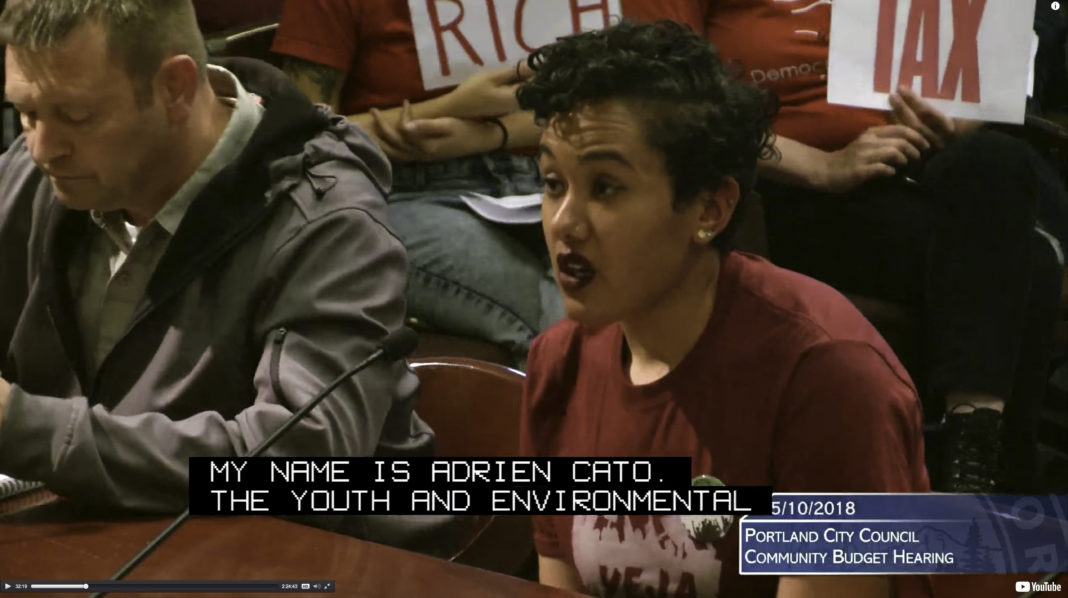At noon on Thursday, May 10, Lincoln Recital Hall once again hosted the Music Department’s Noon Concert, this time featuring all pianists.
The concert opened with two movements from J.S. Bach’s Partita No. 2 in C minor, the “Sinfonia” and the “Capriccio,” both performed by pianist Melissa Terrall. After Bach came two from the Hungarian mystic and piano virtuoso Franz Liszt: “La Leggierezza” from Trois Etudes de Concert, performed by Lifia Teguh, and “Italie” from Annees de pelerinage played by Naomi Burla.
Liszt has never been my favorite composer, but Teguh and Burla sold me on his charms. Teguh played a bunch of gonzo blurry flurries with the right hand, her left hand boldly and expressively singing Liszt’s melodies and building to a sweet major climax. Burla played a very different side of the famously contradictory Liszt—her playing was no less dazzling than Teguh’s, but the piece was in a much more somber and reflective mood.
Western-Li Summerton played great French composer Maurice Ravel’s “Une barque sur l’ocean” from Miroirs. I was amazed by the clarity of the many layers in Summerton’s loud and assertive playing. The glittering impressionist cascades were performed with a firm touch that allowed Ravel’s catchy melody to sparkle and resonate within everyone’s head. I even heard a few people humming it on the way out.
Next up, Karey Miles played “The Fountain of Acqua Paola” from Roman Sketches by American impressionist composer Charles Griffes. I hadn’t heard Griffes before this and was pleased by its distinctly fin de siècle Americana sound. I only wished Miles had played something longer because her playing never fails to astonish.
I’d heard Kevin Rahardjo play bits of Polish virtuoso Leopold Godowsky’s 1925 Java Suite, but this was my first time hearing him play the suite’s sixth movement, “The Bromo Volcano and the Sand Sea at Daybreak,” all the way through for a recital. Rahardjo coaxed myriad crashing waves of sound from Lincoln 75’s nine-foot Steinway which reminded me of Nietzsche’s famous saying:
“We are, all of us, growing volcanoes that approach the hour of their eruption, but how near or distant that is, nobody knows—not even God.”
Closing the concert, Dr. Chuck Dillard accompanied Ben Gimm on the first movement—“Allegro Molto”—of Russian jazz-classical composer Nikolai Kapustin’s Piano Concerto No. 2. Kapustin’s music has been bouncing around the perimeters of my consciousness ever since Miles turned the whole graduate cohort onto his ersatz jazz style a couple years ago.
Gimm and Dillard interacted very nicely, and Gimm’s breezy confidence suited the music quite well. Even with the reduction of Kapustin’s vaguely Quincy-esque orchestral accompaniment to a single piano, the concerto still had the ‘70s “Third Stream” sound familiar to fans of Dave Brubeck and Gunther Schuller. I think I liked the duo piano version better.
I ran into to a couple of PSU student composers outside Lincoln Hall and asked Damon Flick what he thought of the Kapustin piece. “It was an incredible blend of show tunes, late Romantic sentiment, and really cutting edge polytonal jazz stuff—the spice,” Flick said. “The programming, chronologically, was well done. It contextualized it in a way that made it stand out, and impact me in a way it wouldn’t if the recital had all been 20th century stuff.”
I typically receive more detailed answers from Ben Montgomery when I ask him what he didn’t like. “I’m just tired of hearing Bach,” he said. “I thought Lifia’s Liszt was fantastic. The Ravel was very in place, observational music. In a good way! That’s what impressionism is: a very detailed still shot.”
I caught up with Teguh and we talked for a bit about performing Lizst.
VG: Did you choose the Liszt piece yourself, or was it chosen for you?
Teguh: I chose it. I first discovered it when I was in Warsaw in a piano festival last summer, the Warsaw Piano Workshop. A participant played it, and it was really warm and sparkling and it just warmed my heart. To me at first it didn’t seem so difficult, she did such a great job of making it seem effortless! So I was, like, “I’m so going to play that for my recital and for the noon concert.” I already knew, that’s my piece right there. And I totally love it, because a lot of Liszt pieces are showy, but this one is more deep soul lyricism.
VG: What were some of the challenges of learning and performing it?
Teguh: To make it sound easy, although it’s freaking difficult! Everything’s moving the whole time, there’s no rest until the end. Keeping the energy going, keeping it relaxed, and feeling the emotions of it while playing all those technically challenging parts. A lot of Liszt is usually just “Hey I’m so cool, look at how I’m so good.” A lot of times that’s why people choose Liszt.
Upcoming Recitals:
Melissa Terrall 1 p.m. June 9 LH 75
Naomi Burla 3 p.m. June 9 LH 75
Lifia Teguh 7 p.m. June 16 LH 75
For more information on the School of Music & Theater’s free weekly Noon Concert Series, including a complete schedule, visit www.pdx.edu/music/noon-concert-series







